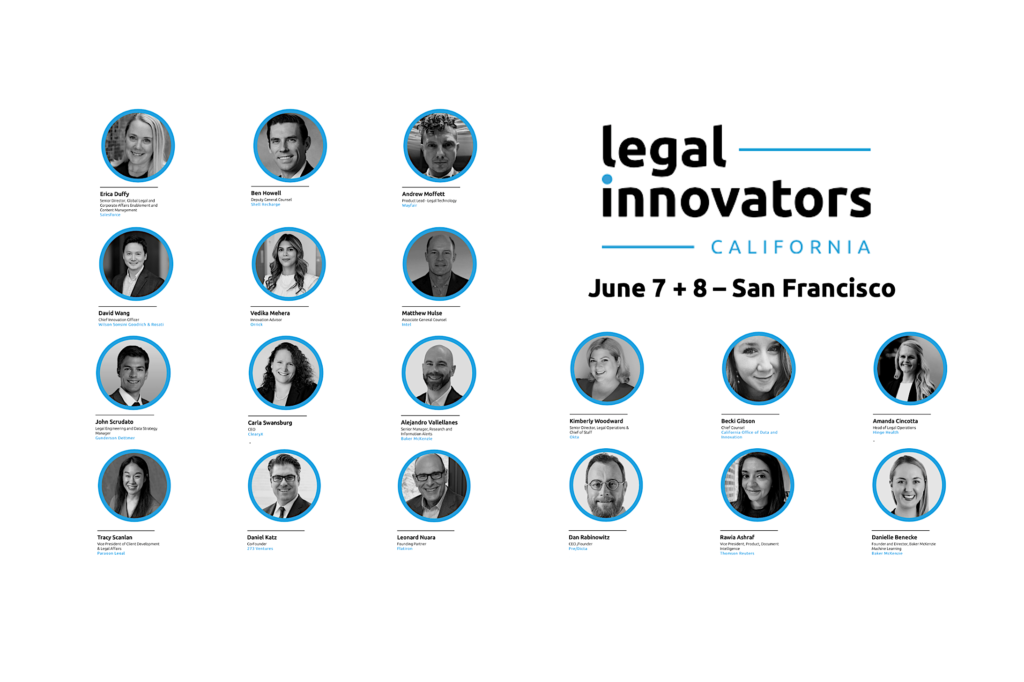
This week’s Legal Innovators California Profile is with Adam Bentley, Global Head of Legal for Uber Freight, an Uber business that is taking logistics in a new direction for both shippers and carriers.
Adam will be speaking at the landmark legal innovation conference in San Francisco on June 7 and 8. For more details please see here.
—
– When did you first hear the term ‘legal innovation’ and what did you think at the time?
The words ‘legal’ and ‘innovation’ are not thought about in the same sentence nearly as often as they should be, but I truly believe that is changing. In order to effectively partner with the business, the legal team needs to be fast, responsive and practical, and that means deploying the right technologies, systems and processes to get the most of our most valuable resource – our team.
– What is your role now?
Head of Legal at Uber Freight, where we are leveraging industry leading technologies and operational excellence to build a logistics platform that serves the companies and carriers who move everything we rely on every day. If you’re touching it, it’s been on a truck.
– Why did you move into this field?
After spending nine years doing M&A work as an outside counsel, I wanted to move in-house and make a difference in the technologies that move everything around us. Trucking and logistics is such a core industry of our economy, and there is so much opportunity to use great tech and great people to make logistics easier and more connected for everyone involved. Creating a more efficient and connected logistics marketplace also has great environmental benefits, and at Uber Freight we are contributing to progress with carrier products that reduce empty miles and emerging partnerships with EV fleets.
– What is the most rewarding aspect of your job?
I’m lucky to work with a marvellous legal team and business clients who are passionate about Uber Freight’s mission. I love working with great people to solve difficult problems, and working through the complexities of logistics at Uber Freight provides plenty of opportunities.
– If you looked into a crystal ball, how much do you think the everyday practice of law would change in the next five to ten years, especially given changes in AI?
When people talk about in-house legal work and AI, there seem to be clear opportunities to make transactional processes and contracting more efficient using the AI tools that are beginning to emerge. I also think the abilities of generalist in-house practitioners will expand with AI tools that will help lawyers get up to speed in specific areas of law they may not advise on regularly.
– What are the biggest challenges legal innovation now faces in the current climate?
I think the current climate, where everyone wants to get the most out of the resources they have, is a great climate for innovation. On the other hand, expensive systems and tools will have to prove their value.
– And what are the greatest opportunities now for change across the legal sector?
For in-house legal teams, I think that the advent of better legal platform systems powered by AI hold the promise to help make some of the most common legal inquiries and work processes run smoother with less human touchpoints, freeing up valuable team members to focus on initiatives we’re not able to get to today.
– And finally, what advice would you give to anyone wanting to get into the field of legal innovation and legal tech?
Jump in, there’s never been a better time!
–
Thanks Adam! Looking forward to hearing you speak at Legal Innovators California, June 7 and 8 in San Francisco.
If you would like more information about the two-day event, please see here. Day One will focus on law firms and ALSPs, and Day Two will focus on inhouse and legal ops.
To get your tickets and book your place at the landmark legal innovation conference this June 7 and 8, please see here.
See you all there!
Richard Tromans, Founder of Artificial Lawyer and conference Chair
